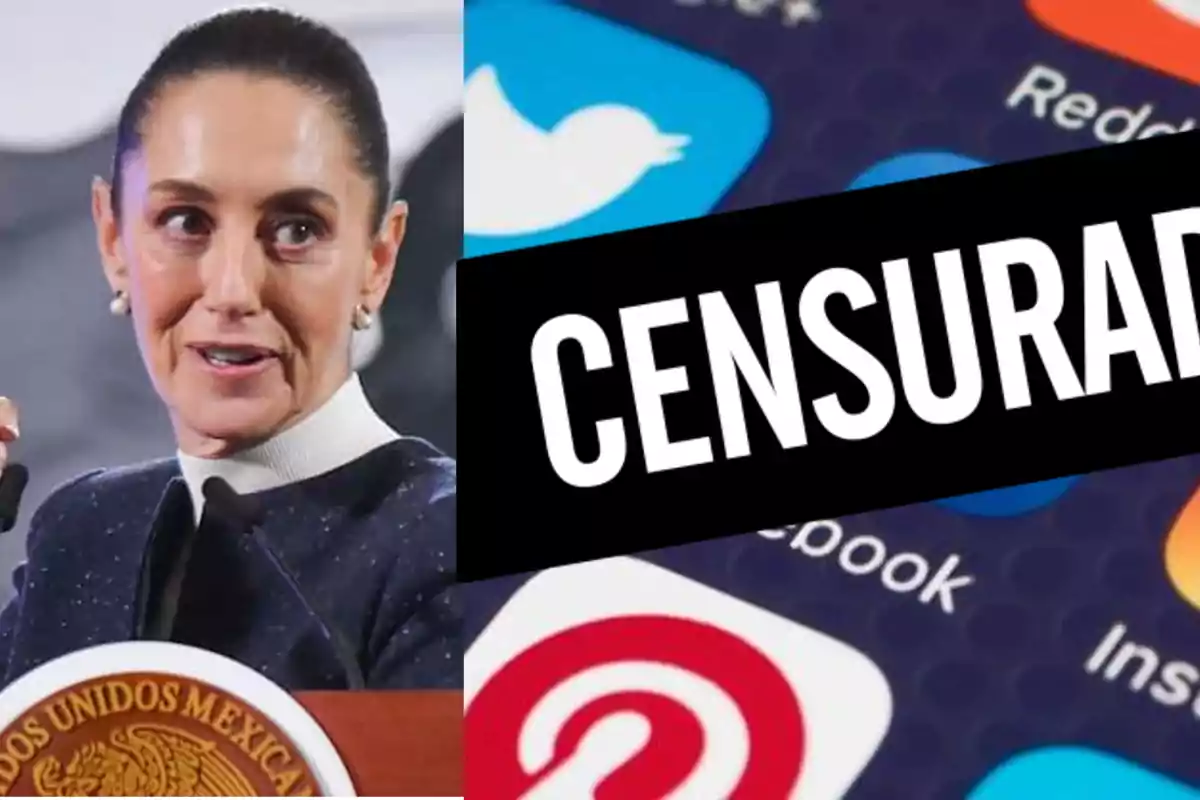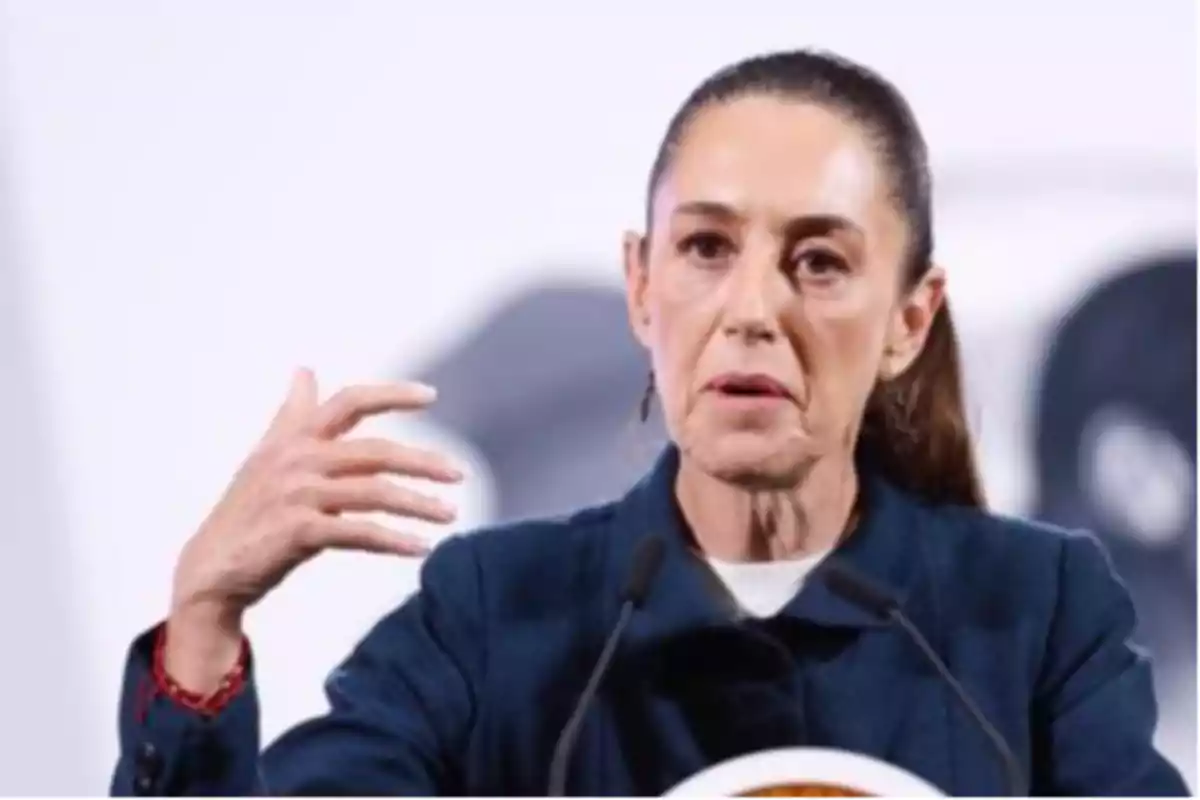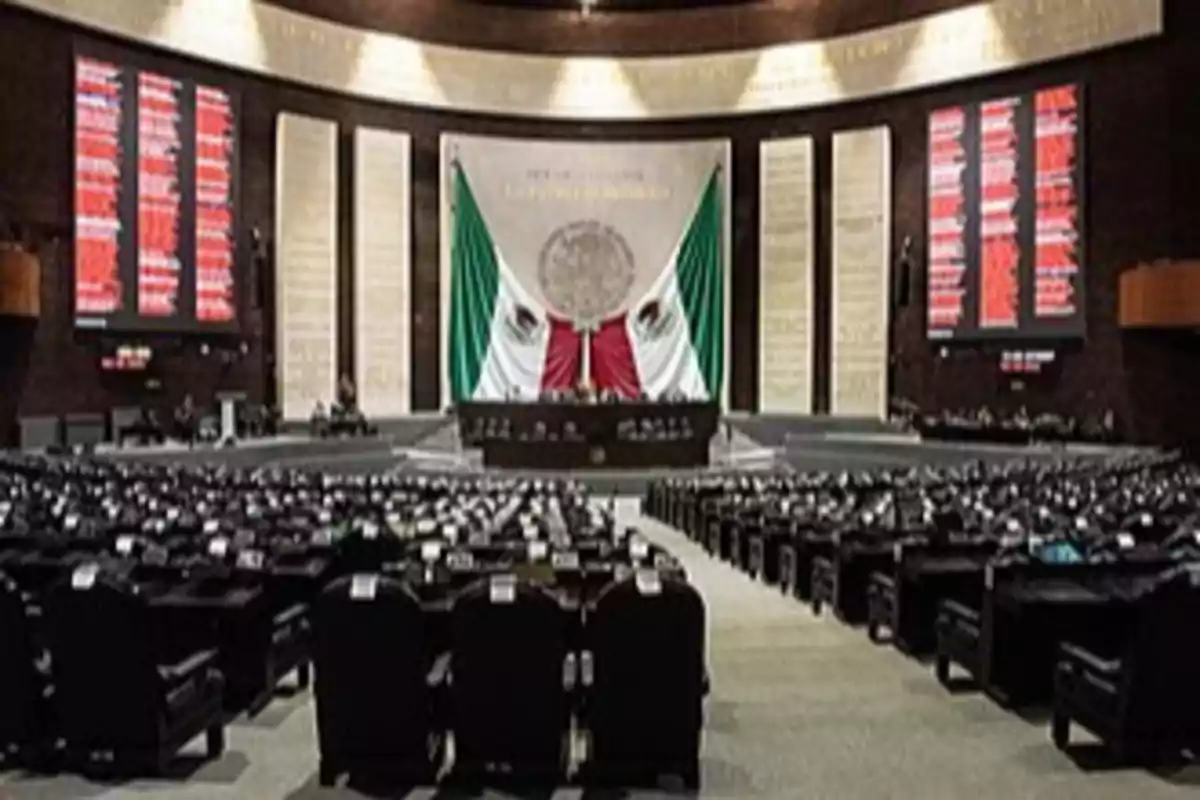
Sheinbaum sent reform to Congress to control the media and social networks
The reform gives the government control to choose to block content in media and social networks at its discretion
The communist president Claudia Sheinbaum sent a concerning reform to the Senate to modify the Federal Telecommunications and Broadcasting Law. The reform opens the door for the government to have the ability to block digital content without a court order or clear limits.
The Senate committees on Radio, Television and Film; Communications and Transportation, and Legislative Studies approved the proposal with 29 votes in favor from the ruling bloc. Only 5 opposition senators voted against it.
The proposal will be discussed in the Senate Plenary on Monday, April 28. It is expected that the qualified majority of ruling senators will approve it "fast track", without reading, analysis, or consultation forums, just as it happened in the committees.

A dangerous reform for freedom of expression
Although the proposal is presented under the pretext of prohibiting foreign propaganda in Mexican media, it arises from the spot by the United States Secretary of Homeland Security, Kristi Noem, against illegal immigration. In practice, it grants the Digital Transformation and Telecommunications Agency (ATDT) concerning powers.
The agency will be able to blocksocial networks, digital platforms, websites, and even applications. All at the government's discretion. Additionally, it will be able to withdraw radio and television concessions.

Article 109 of the initiative grants the government the power to block and censor platforms without the need for a court order, without checks and balances or clear procedures. In other words, any criticism of the regime, any independent media or uncomfortable news channel, could be censored without explanation or legal justification.
The government seeks to decide what you can see
Alejandra Barrales, senator of Movimiento Ciudadano, also warned that this project is, in every sense, an attempt at censorship.
"It is the same Agency that will issue the guidelines. At the same time, decide which platforms to block"
The leader of the PAN in the Senate, Ricardo Anaya, stated that the ruling bloc senators of the committees didn't even read the reform. They approved it without any seriousness:
"This session is cynicism at its highest expression. This 226-page report with 283 articles was published yesterday at 10 p.m. They haven't even read it"
Additionally, he pointed out that this report represents the Mexican version of tactics used by authoritarian regimes. First, they identify a real problem. Then, they alter the information to confuse public opinion. Finally, they use that confusion to introduce a hidden agenda.

Digital Transformation and Telecommunications Agency
The head of the ATDT is José "Pepe" Merino. He is a political scientist who, during the COVID-19 pandemic, promoted a study without proper procedures. This study claimed that the use of ivermectin reduced hospitalizations.
The CDMX Government used this supposed study to medicate the population massively, endangering public health.
He reached the head of the ATDT because he was Claudia Sheinbaum's electoral operator. He participated in her campaign for the Head of Government of CDMX and in her race for the Presidency of the Republic in 2024.
Widespread rejection
Organizations like the International Chamber of Commerce Mexico (ICC Mexico) have already raised their voices. They demand that the proposal be analyzed through an Open Parliament. The parliament must have participation from experts, academics, companies, and civil organizations.
Additionally, they warned about possible violations to the USMCA. This reform weakens the autonomy of regulatory bodies and opens the door to anticompetitive practices.
The Office in Mexico of the United Nations High Commissioner for Human Rights called the Senate's attention. They asked for the respect of freedom of expression rights.
Digital freedom and regulatory independenceare essential pillars in any modern democracy. Undermining those principles not only affects the economy. It also impacts citizens' right to be informed freely.

The government denies it, but the threat is real
In her conference on April 22, Sheinbaum tried to downplay the reform. She stated that "there is no intention of censorship" and that functions are only being transferred between agencies.
But her words contrast with the text of the initiative itself. This text gives a government agency the power to decide what content can or can't be disseminated on digital platforms.
It is not about paranoia, but about facts. And the facts show that this reform, if approved, will be a direct blow to digital freedoms in Mexico.

Today it is an uncomfortable criticism. Tomorrow it could be your personal opinion, a citizen complaint, or a conversation between friends. Censorship, once allowed, has no clear limits.
Free access to informationis a right, not a favor from the government. And it must be defended.
More posts: